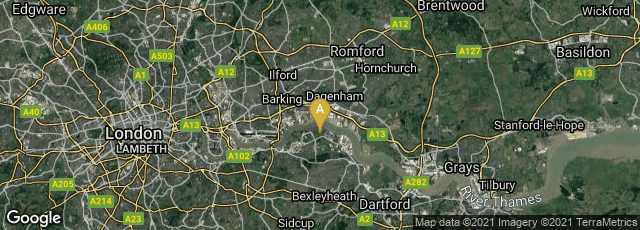

A: London, England, United Kingdom
In 1623 Henry Condell, an actor in Shakespeare's company, the King's Men, and John Heminges, another actor in Shakespeare's company, prepared the first folio edition of Shakespeare's plays for publication. Their preface to the work is notable for many reasons: first, just because it is the preface to one of the world's most famous books, but also because of its clear exhortation to readers to purchase the work rather than just read it. One argument they provide for purchase is that they have included the authentic texts of the plays, a detail that undoubtedly appealed to readers and buyers at the time, as it has long appealed to readers and scholars of later generations. Here is the text of their preface:
TO THE GREAT VARIETY OF READERS
"FROM the most able, to him that can but spell: There you are number’d. We had rather you were weighd. Especially, when the fate of all Bookes depends vpon your capacities: and not of your heads alone, but of your purses. Well! it is now publique, & you wil stand for your priuiledges wee know: to read, and censure. Do so, but buy it first. That doth best commend a Booke, the Stationer saies. Then, how odde soeuer your braines be, or your wisedomes, make your licence the same, and spare not. Iudge your sixe-pen’orth, your shillings worth, your fiue shillings worth at a time, or higher, so you rise to the iust rates, and welcome. But, what euer you do, Buy. Censure will not driue a Trade, or make the Iacke go. And though you be a Magistrate of wit, and sit on the Stage at Black-Friers, or theCock-pit, to arraigne Playes dailie, know, these Playes haue had their triall alreadie, and stood out all Appeals; and do now come forth quitted rather by a Decree of Court, then any purchas’d Letters of commendation.
"It had bene a thing, we confesse, worthie to haue bene wished, that the Author himselfe had liu’d to haue set forth, and ouerseen his owne writings; But since it hath bin ordain’d otherwise, and he by death departed from that right, we pray you do not envie his Friends, the office of their care, and paine, to haue collected & publish’d them; and so to haue publish’d them, as where (before) you were abus’d with diuerse stolne, and surreptitious copies, maimed, and deformed by the frauds and stealthes of iniurious imposters, that expos’d them: euen those, are now offer’d to your view cur’d, and perfect of their limbes; and all the rest, absolute in their numbers, as he conceiued them. Who, as he was a happie imitator of Nature, was a most gentle expresser of it. His mind and hand went together: and what he thought, he vttered with that easinesse, that wee haue scarse receiued from him a blot in his papers. But it is not our prouince, who onely gather his works, and giue them you, to praise him. It is yours that reade him. and there we hope, to your diuers capacities, you will finde enough, both to draw, and hold you: for his wit can no more lie hid, then it could be lost. Reade him, therefore; and againe, and againe: and if then you doe not like him, surely you are in some manifest danger, not to understand him. And so we leaue you to other of his Friends, whom if you need, can bee your guides: if you neede them not, you can leade your selues, and others, and such Readers we wish him.